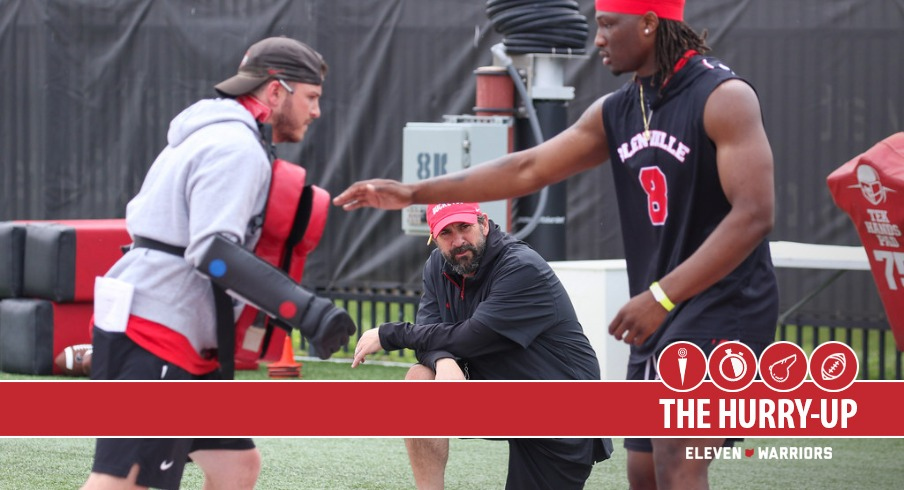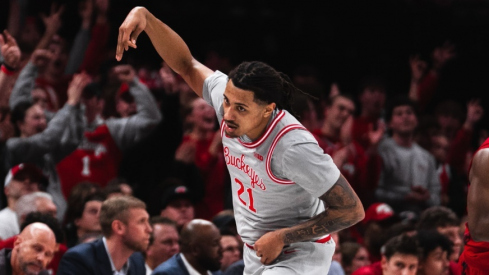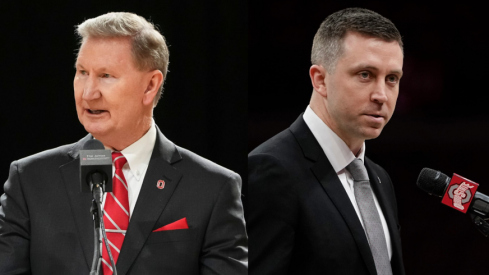Ryan Day’s past two defensive coordinator hires haven’t necessarily been made with recruiting primarily in mind.
Both Jim Knowles and Matt Patricia were hired at Ohio State to run the Buckeyes’ defense, and both have built a reputation for installing effective defensive game plans. In Knowles’ three years as defensive coordinator, he often took a backseat in some recruiting efforts. Most OSU fans had the same expectations of Patricia upon his hiring, but the early returns of Patricia the recruiter have been positive, according to Day.
In his first year as OSU’s primary defensive play caller, Patricia has visited many OSU targets across several recruiting classes during open periods and has been especially involved in defensive line recruiting. He showed plenty of interest in coaching specific players during some Buckeyes’ recruiting camps in June, including linebacker Cincere Johnson, who committed to OSU a week following his workout with Patricia and OSU.
“I think Matt has done a great job of building relationships already with the current players,” Day said Wednesday at Big Ten Media Days regarding Patricia and how he’s acclimated to Columbus. “When you ask them about that and you ask the recruits about Matt, they just have glowing responses about who he is, the way he connects, his personality. I'm fired up.”
Of course, Patricia will ultimately be judged primarily on how the Buckeyes’ defense performs this season, but Day has been eager to see how Patricia has embraced recruiting so far in his brief OSU tenure.
Collectives are now apparently a thing again
The House settlement is quickly becoming like the College Football Playoff format. If you don’t like it as currently constructed, wait a little bit, it will change.
There was countless speculation from the beginning about how heavily the NCAA would be able to enforce the new guidelines of the house settlement regarding its revenue-sharing cap and approval/non-approval of NIL deals. Well, we went about three weeks before we saw a major pivot from the College Sports Commission.
According to a report from Yahoo Sports’ Ross Dellenger, attorneys for the House plaintiffs reached an agreement with power conferences and NCAA officials to amend the CSC’s policy on how booster-backed collectives can pay athletes. Per the agreement, the CSC will treat collectives or “any school-associated entity” like other businesses when determining the legitimacy of third-party NIL deals submitted to the new NIL Clearinghouse. That’s a stark difference from its original stance, where it previously denied multiple deals from collectives because it argued that deals from those entities did not serve a valid business purpose.
In short, we’re likely back to a soft cap rather than the hard cap set using the $20-million figure teams are allowed to directly share with athletes this year.
Ohio State had been waiting for clarity about how the new settlement rules would be enforced before making lucrative offers to prospects it couldn’t live up to, and perhaps this ruling may provide some needed clarity.
“I’ve heard the conversation about a soft cap and some of the different deals and how collectives are going to get looked at in terms of the deals that are made,” Ryan Day said at Big Ten Media Days on Wednesday. “What we don’t want to do at Ohio State is make agreements or talk to people about certain deals and have to claw those things back because they don’t get cleared. I don’t think that’s the right look for us at Ohio State. I think some folks are being more aggressive than others. That’s their decision. We’re always going to be aggressive but we also want to make sure we’re doing things the right way.”


